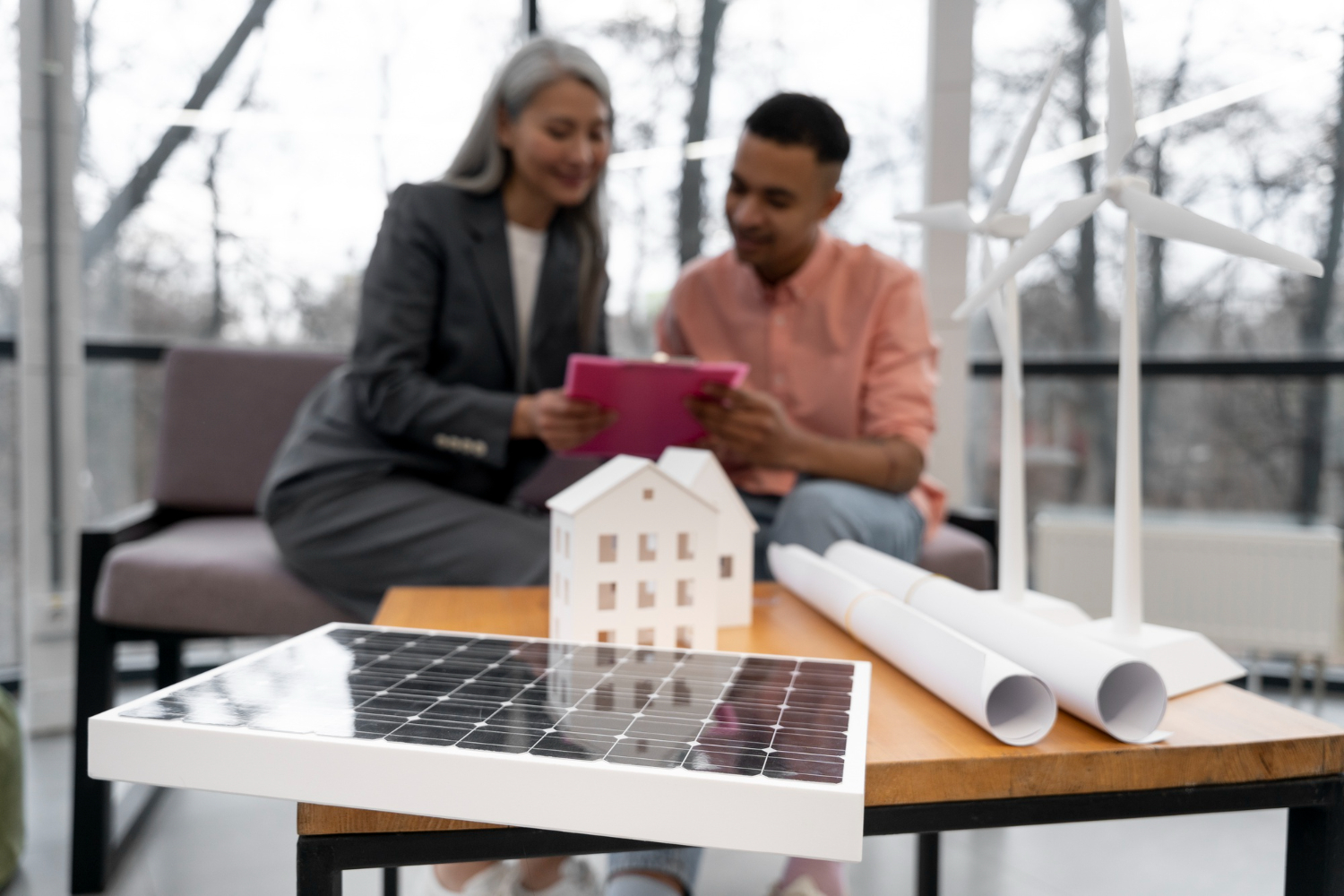Introduction
As concerns about climate change and energy consumption continue to grow, the construction industry is increasingly focusing on sustainable and energy-efficient building practices. One of the most innovative and impactful approaches is the construction of zero-energy houses. These homes are designed to produce as much energy as they consume, resulting in a net-zero energy footprint. Vancouver Grand Construction Inc. is at the forefront of this movement, utilizing advanced technologies to build zero-energy houses that are not only environmentally friendly but also cost-effective for homeowners. In this article, we will explore the technologies and methods used in constructing zero-energy houses.
Description About Zero-Energy House Construction Technologies
1. High-Performance Building Envelope
The building envelope—comprising the walls, roof, windows, and doors—plays a critical role in the energy efficiency of a zero-energy house. A high-performance building envelope minimizes heat loss in winter and heat gain in summer, reducing the need for heating and cooling.
Technologies:
- Insulated Concrete Forms (ICFs): These forms provide excellent insulation and structural integrity, reducing thermal bridging and improving energy efficiency.
- Triple-Glazed Windows: Windows with three layers of glass offer superior insulation, reducing heat transfer and energy loss.
- Airtight Construction: Ensuring that the building envelope is airtight prevents drafts and unwanted heat exchange, maintaining a stable indoor temperature.
Benefits:
- Energy Savings: Reduces the need for HVAC systems, lowering energy consumption.
- Comfort: Enhances indoor comfort by maintaining consistent temperatures year-round.
- Durability: Improves the longevity of the building by protecting it from environmental factors.
2. Renewable Energy Systems
Zero-energy houses rely on renewable energy systems to generate electricity on-site, offsetting the energy they consume. Solar power is the most common renewable energy source used in these homes.
Technologies:
- Photovoltaic (PV) Solar Panels: Solar panels convert sunlight into electricity, providing a renewable energy source for the home.
- Solar Thermal Systems: These systems use solar energy to heat water, reducing the need for conventional water heating methods.
- Wind Turbines: In areas with sufficient wind, small-scale wind turbines can be used to generate additional electricity.
Benefits:
- Sustainability: Reduces reliance on fossil fuels and decreases the home’s carbon footprint.
- Cost Savings: Generates free electricity from renewable sources, lowering utility bills.
- Energy Independence: Allows homeowners to produce their own energy, reducing dependence on the grid.
3. Energy-Efficient HVAC Systems
Heating, ventilation, and air conditioning (HVAC) systems in zero-energy houses are designed to be highly efficient, ensuring that they use as little energy as possible while maintaining indoor comfort.
Technologies:
- Heat Recovery Ventilation (HRV): HRV systems recover heat from exhaust air and use it to preheat incoming fresh air, reducing heating demands.
- Ground-Source Heat Pumps (GSHPs): GSHPs use the stable temperature of the ground to provide heating and cooling, offering a highly efficient alternative to conventional HVAC systems.
- Ductless Mini-Split Systems: These systems provide targeted heating and cooling to specific areas of the home, reducing energy waste.
Benefits:
- Energy Efficiency: Reduces the energy required for heating and cooling, contributing to the home’s net-zero energy goal.
- Improved Air Quality: HRV systems provide fresh, filtered air, enhancing indoor air quality.
- Comfort: Maintains a consistent and comfortable indoor environment throughout the year.
4. Smart Home Technology
Smart home technology plays a crucial role in optimizing energy use in zero-energy houses. These systems allow homeowners to monitor and control energy consumption, ensuring that the home operates as efficiently as possible.
Technologies:
- Smart Thermostats: These devices learn user preferences and adjust temperatures automatically to optimize energy use.
- Automated Lighting: Smart lighting systems adjust based on occupancy and natural light, reducing unnecessary energy consumption.
- Energy Monitoring Systems: These systems provide real-time data on energy use, allowing homeowners to make informed decisions about their energy consumption.
Benefits:
- Energy Optimization: Ensures that energy is used efficiently, reducing waste.
- Convenience: Provides easy control of home systems through smartphones or voice commands.
- Cost Savings: Helps homeowners identify areas where they can reduce energy consumption, lowering utility bills.
5. Water Conservation Systems
Water conservation is another important aspect of zero-energy house construction. These homes incorporate technologies that reduce water usage and promote sustainable water management.
Technologies:
- Low-Flow Fixtures: Faucets, showerheads, and toilets that use less water without sacrificing performance.
- Rainwater Harvesting Systems: Systems that collect and store rainwater for non-potable uses, such as irrigation or toilet flushing.
- Greywater Recycling: Systems that treat and reuse greywater from sinks, showers, and washing machines for non-potable applications.
Benefits:
- Water Savings: Reduces water consumption, leading to lower utility bills.
- Sustainability: Promotes responsible water management and reduces the home’s environmental impact.
- Resource Efficiency: Ensures that water is used efficiently and sustainably.
Conclusion
The construction of zero-energy houses represents a significant step forward in sustainable building practices. By integrating high-performance building envelopes, renewable energy systems, energy-efficient HVAC systems, smart home technology, and water conservation systems, Vancouver Grand Construction Inc. is helping to pave the way for a greener, more energy-efficient future. These homes not only reduce environmental impact but also offer long-term cost savings and enhanced comfort for homeowners. As the demand for sustainable living continues to grow, zero-energy houses will play an increasingly important role in the construction industry.
Contact Us
We are always happy to discuss your projects and offer the best solutions. Learn more about our services and modern construction technologies on our website.
